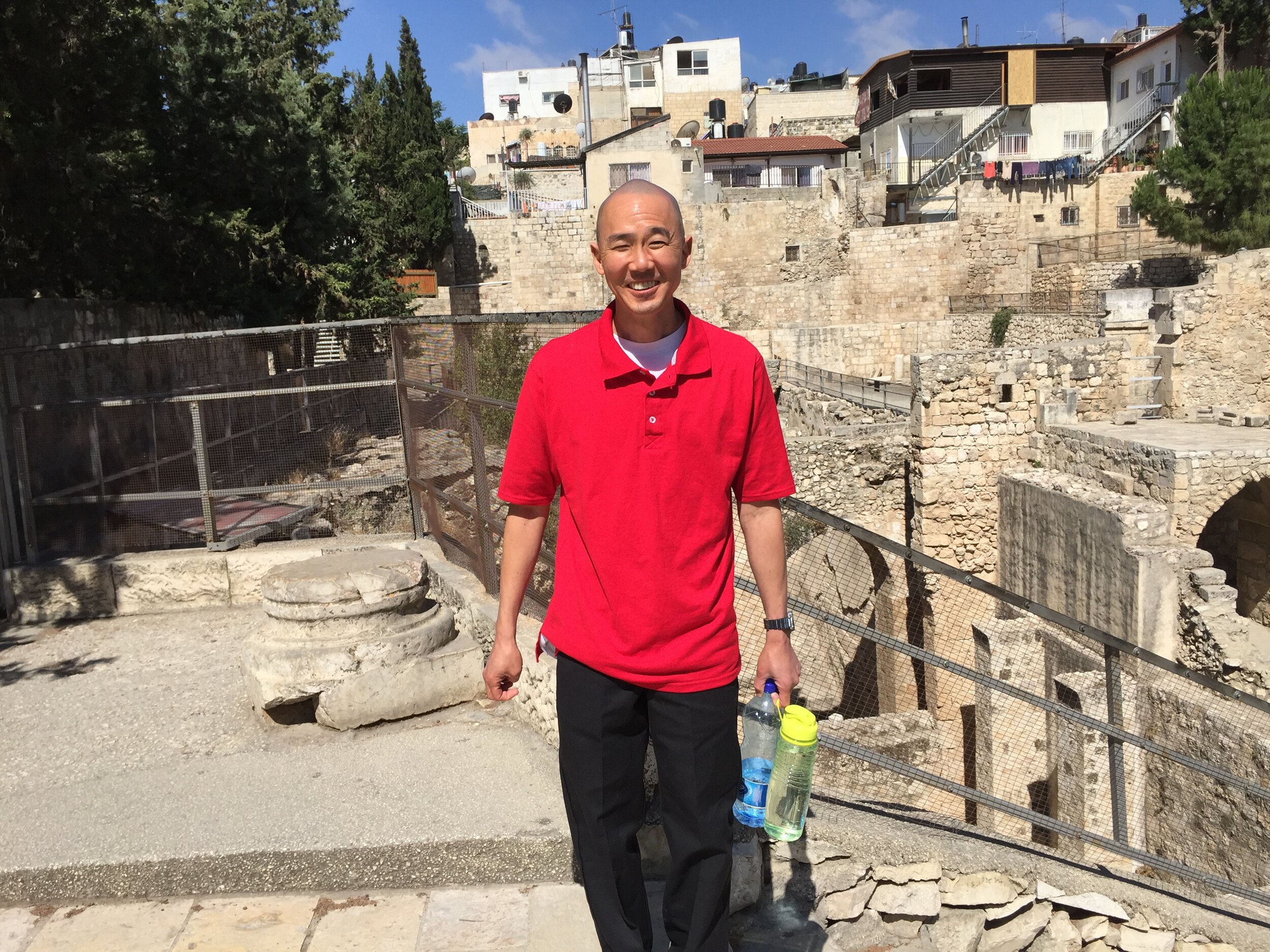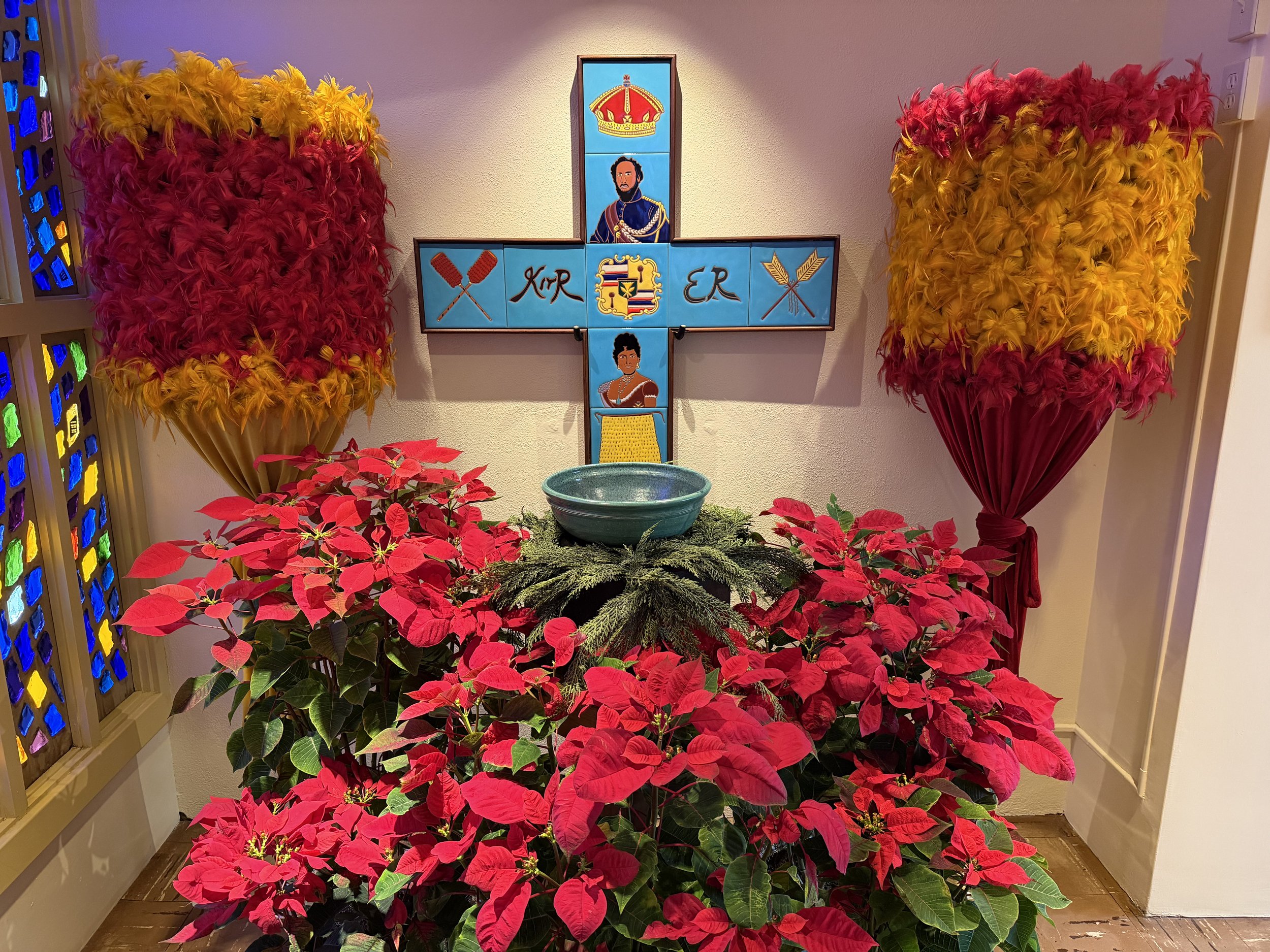From Michael Ida: His mercy endures forever
/Thursday, September 3, 2020
“That class certainly didn’t go well.”
As the first day of my fourth period section came to a close, this was the foremost thought in my mind. From the anonymous state worker, whom we only half-affectionately refer to as “Lawnmower Guy,” performing his eponymous duty outside of my classroom; to the school’s overloaded wi-fi network, not-so-subtly reminding me that there were dozens of other teachers and hundreds of other students simultaneously attempting to do the same thing that I was; to my friends from the insect world, insistently informing me that my open-air classroom and I were invading their personal space, the period had been an uphill battle all the way, with the mountain winning hands-down. Going into my silver jubilee year of public school teaching, I am certainly no stranger to making do and turning lemons into lemonade, but the past few weeks of relentless frustration, worry, and fatigue were beginning to take their toll.
Michael Ida on pilgrimage in Jerusalem standing before the pools of Bethsaida
Trying to close out the class as gracefully as I could, a soft ping from my laptop alerted me that a student had typed something in the chat box. Thinking that it was just another helpful-yet-redundant message letting me know that the audio quality of the session had been poor, I quickly glanced at it and was soundly brought up short.
Thank you!
Other students chimed in as they signed off.
Thanks.
Thanks and have a nice day!
Thanks very much
My chat box was soon filled with similar messages. I was humbled and touched to the point of tearing up a little. In many ways, young people have borne the brunt of the fiddling and fumbling of us adults, and a little disappointment and even surliness on their part is to be expected and would certainly be completely understandable. The words of psalm 118 that we had recited at Evening Prayer the previous Sunday immediately came to mind.
Give thanks to the Lord, for he is good;
his mercy endures for ever.
Monastic spirituality is very much a spirituality of the hidden. As an oblate of the Order of Julian of Norwich, I feel God’s presence most keenly in those in-between times of life when I am utterly alone, vulnerable, and most authentically myself. God’s fervent desire for us is that we enter more fully into the mystery of his divine love, but to do so requires an active response on our part, and I am convinced that that response begins and ends with gratitude. The big things are easy—the birth of a child or a new job—but the smaller things are more of a challenge, especially when they are lost in the cacophony of fear and animosity. I would encourage you to accept that challenge, however, and I am confident that you will find that in spite of COVID-19, or perhaps because of it, grace and mercy do indeed abound. You can find them if you look in the right places, and my prayer for you is that when you find them, you will experience the same momentary stripping away of all pretext and conceit that I did on that hot afternoon, leaving you breathless, awestruck, and humbled in the face of God’s love.
Dr. Michael Ida, ObJN
The General Thanksgiving
Almighty God, Father of all mercies,
we your unworthy servants give you humble thanks
for all your goodness and loving-kindness
to us and to all whom you have made.
We bless you for our creation, preservation,
and all the blessings of this life;
but above all for your immeasurable love
in the redemption of the world by our Lord Jesus Christ;
for the means of grace, and for the hope of glory.
And, we pray, give us such an awareness of your mercies,
that with truly thankful hearts we may show forth your praise,
not only with our lips, but in our lives,
by giving up our selves to your service,
and by walking before you
in holiness and righteousness all our days;
through Jesus Christ our Lord,
to whom, with you and the Holy Spirit,
be honor and glory throughout all ages.
Amen.
The Book of Common Prayer (pp. 101 and 125)








